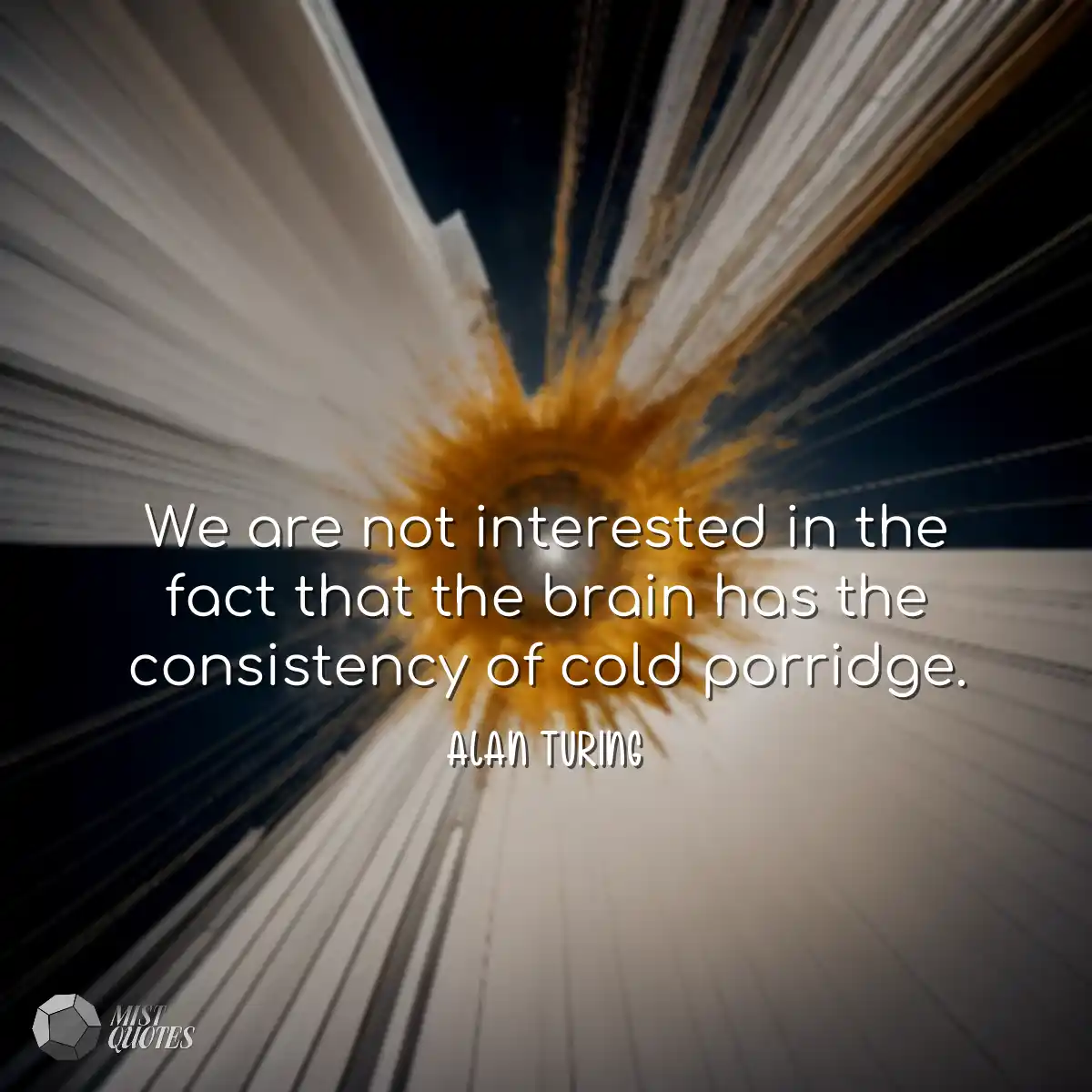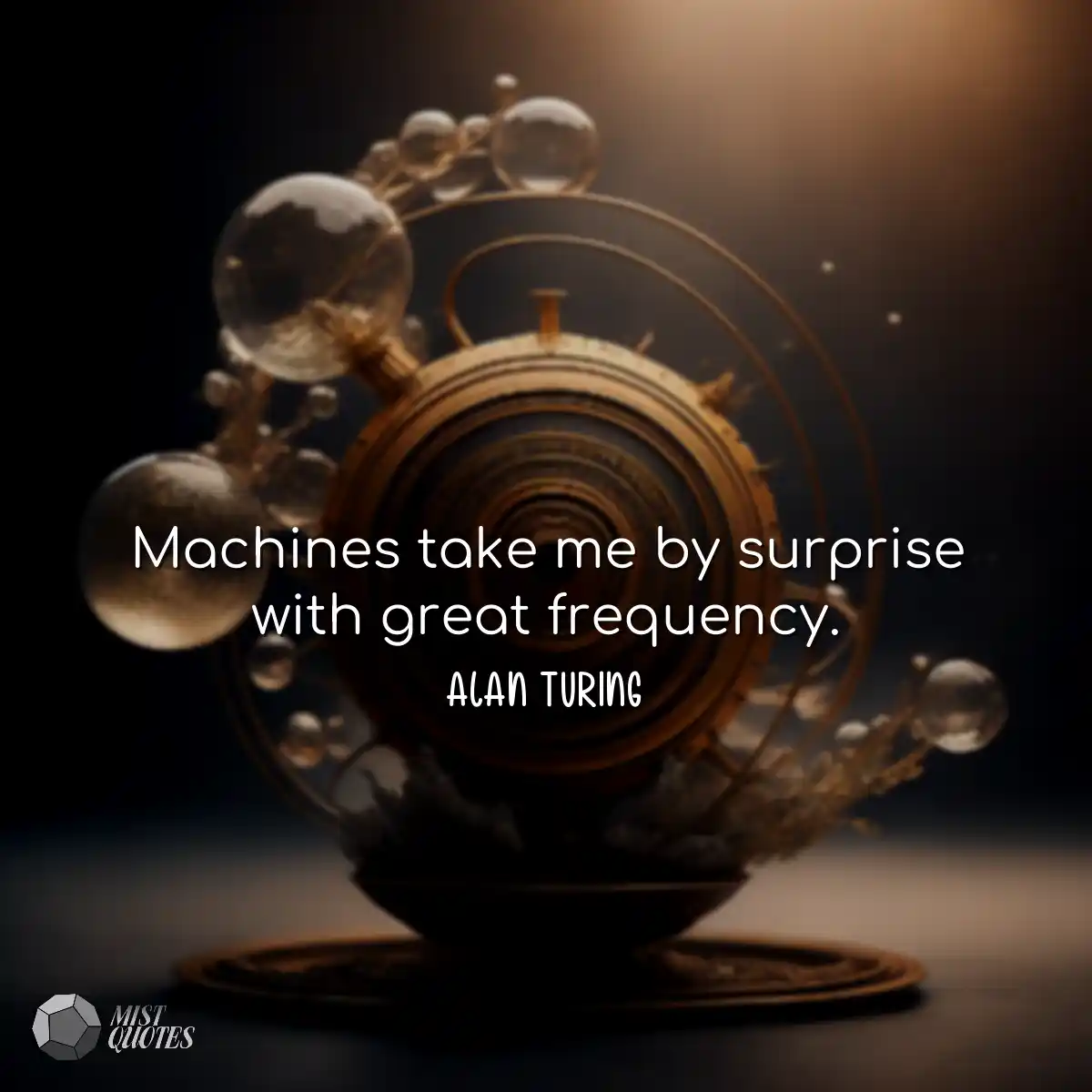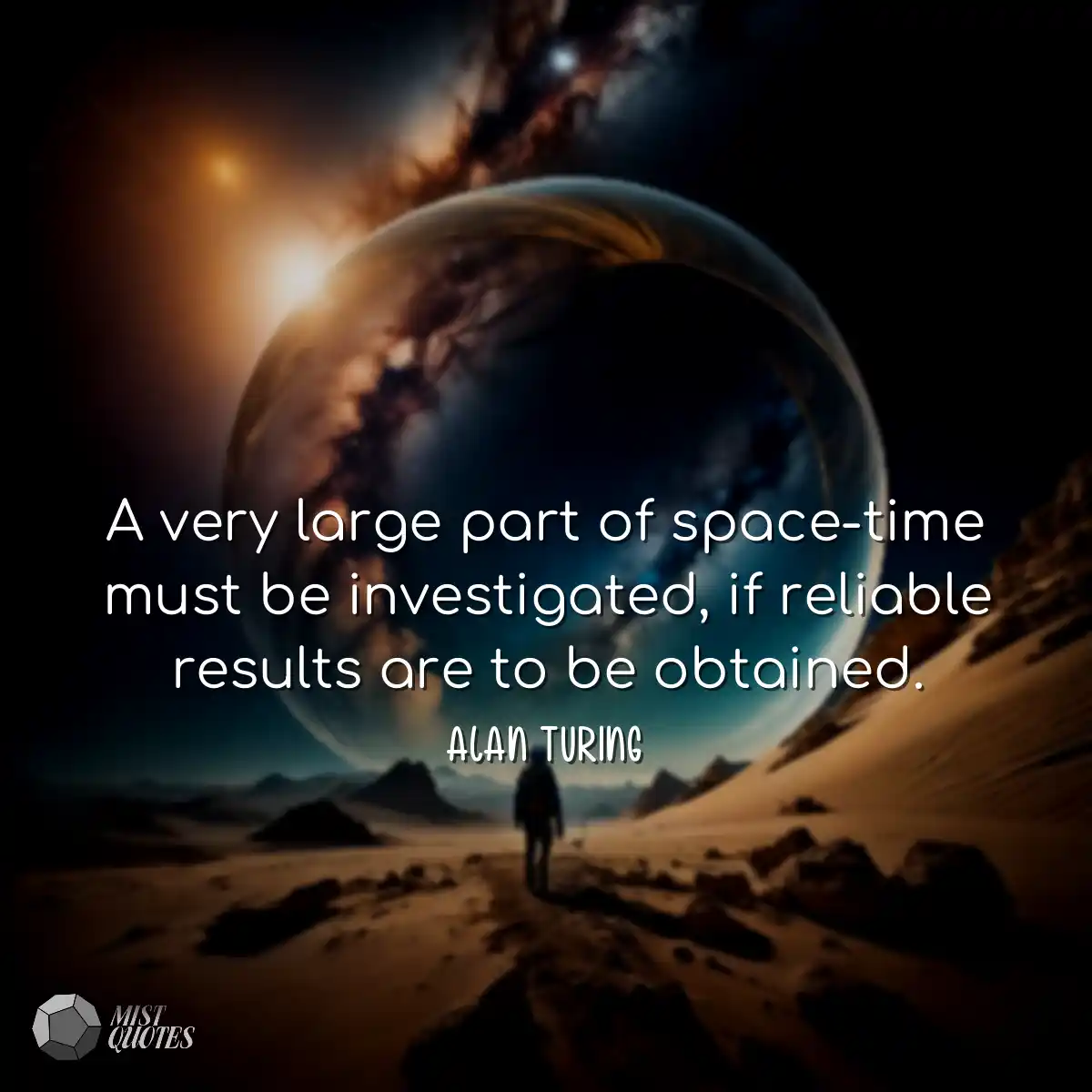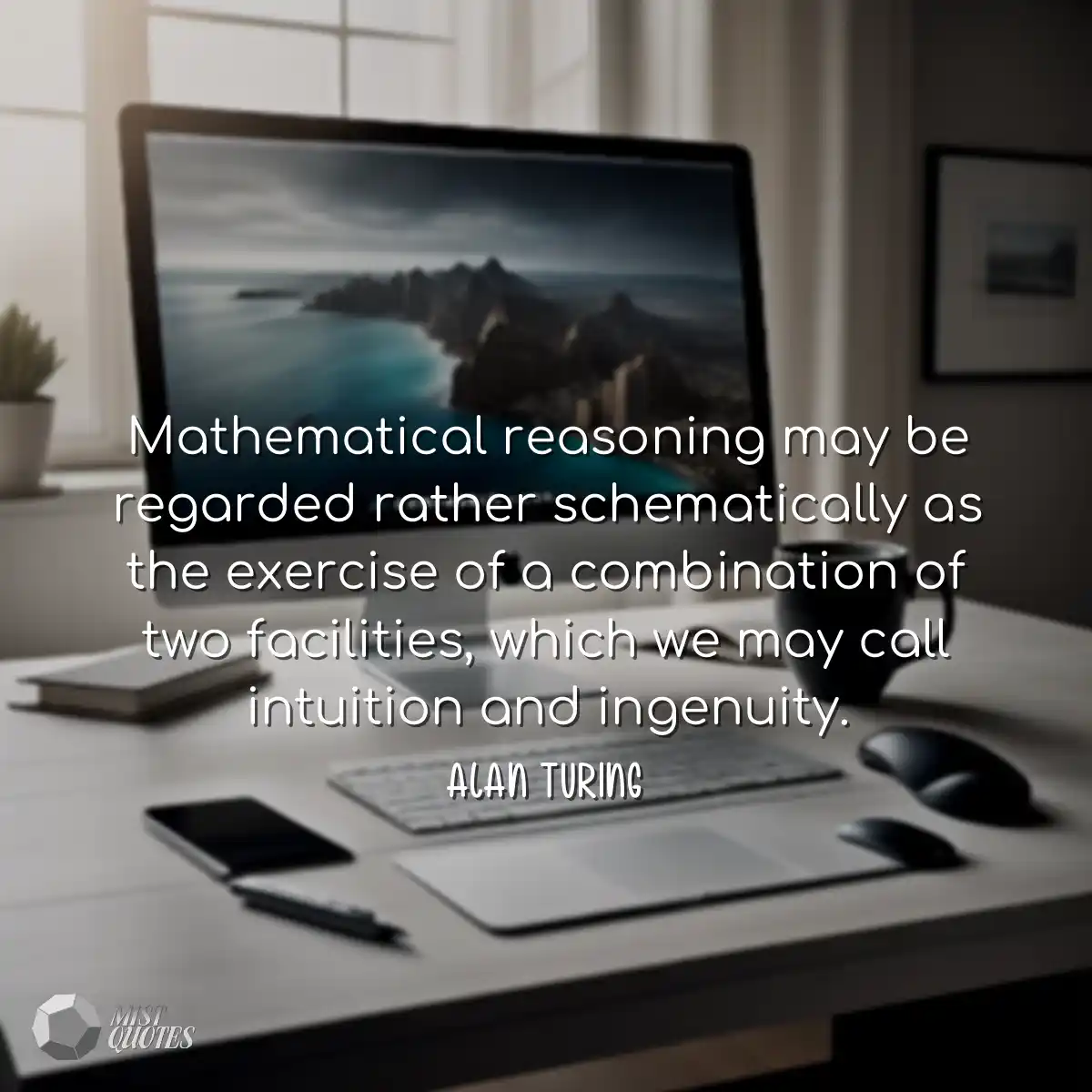
Alan Turing
Computer Scientist, Cryptographer, Professor, Biologist

Sometimes it is the people no one can imagine anything of who do the things no one can imagine.

We can only see a short distance ahead, but we can see plenty there that needs to be done.

The only way to learn the limits of the possible is to go beyond them into the impossible.

A computer would deserve to be called intelligent if it could deceive a human into believing that it was human.

Science is a differential equation. Religion is a boundary condition.

We are not interested in the fact that the brain has the consistency of cold porridge.

Machines take me by surprise with great frequency.

A very large part of space-time must be investigated, if reliable results are to be obtained.

Mathematical reasoning may be regarded rather schematically as the exercise of a combination of two facilities, which we may call intuition and ingenuity.

The body provides something for the spirit to look after and use.
Alan Turing, a name synonymous with brilliance, innovation, and tragedy, remains one of the most influential figures in the history of computer science and mathematics. His groundbreaking work laid the foundation for modern computing and artificial intelligence, yet his life was marked by discrimination and persecution. In this article, we delve into the remarkable achievements of Alan Turing, exploring his contributions to cryptography, computer science, and the broader scientific community.
Born on June 23, 1912, in Maida Vale, London, Alan Mathison Turing exhibited exceptional intellectual abilities from an early age. He attended King's College, Cambridge, where he studied mathematics, laying the groundwork for his future endeavors. Turing's breakthrough came in 1936 with his paper "On Computable Numbers," where he introduced the concept of a theoretical computing machine, now known as the Turing machine. This theoretical device played a pivotal role in defining the limits of computability and became a cornerstone of modern computer science theory.
Turing's work was instrumental during World War II, particularly in breaking the German Enigma code. He joined the Government Code and Cypher School (GC&CS) at Bletchley Park, where he contributed significantly to the development of the Bombe, a machine designed to decipher Enigma-encrypted messages. Turing's innovative techniques, including his pioneering work in cryptanalysis and his development of the Bombe, played a vital role in shortening the war and saving countless lives.
Post-war, Turing continued to make significant contributions to the field of computer science. He worked on the design of early computers, including the Automatic Computing Engine (ACE), and proposed the idea of a universal machine capable of executing any algorithm. His concept of the Universal Turing Machine laid the groundwork for the digital computers that would follow, shaping the trajectory of computing for decades to come.
Beyond his technical contributions, Turing's work in artificial intelligence (AI) was groundbreaking. He proposed the famous Turing Test in his paper "Computing Machinery and Intelligence," suggesting a method to determine whether a machine exhibits human-like intelligence. While the Turing Test remains a subject of debate in the field of AI, Turing's insights laid the foundation for the development of AI as a scientific discipline.
Tragically, Alan Turing's life was marred by the prejudice of his time. In 1952, he was prosecuted for homosexuality, which was then considered a criminal offense in the United Kingdom. Turing was subjected to chemical castration as an alternative to imprisonment, leading to severe emotional and physical distress. He passed away on June 7, 1954, at the age of 41, in what was officially ruled a suicide.
Despite the injustice he faced, Alan Turing's legacy endures. In 2009, British Prime Minister Gordon Brown issued a formal apology on behalf of the British government for the way Turing was treated. In 2013, Queen Elizabeth II granted Turing a posthumous pardon. Turing's contributions to science and humanity were finally recognized, albeit belatedly.
In conclusion, Alan Turing's brilliance and innovation revolutionized the fields of computer science, cryptography, and artificial intelligence. His pioneering work laid the groundwork for the digital age and continues to shape our technological landscape today. As we reflect on his achievements, we must also remember the injustice he endured and strive to honor his memory by promoting equality and justice in all aspects of society. Alan Turing's enduring legacy serves as a reminder of the power of human intellect and the importance of compassion and understanding in the face of adversity.
Recent Quotes
"To help a friend in need is easy, but to give him your time is not always opportune."
Charlie Chaplin
"Life can be wonderful if you're not afraid of it. All it takes is courage, imagination… and a little dough."
Charlie Chaplin
